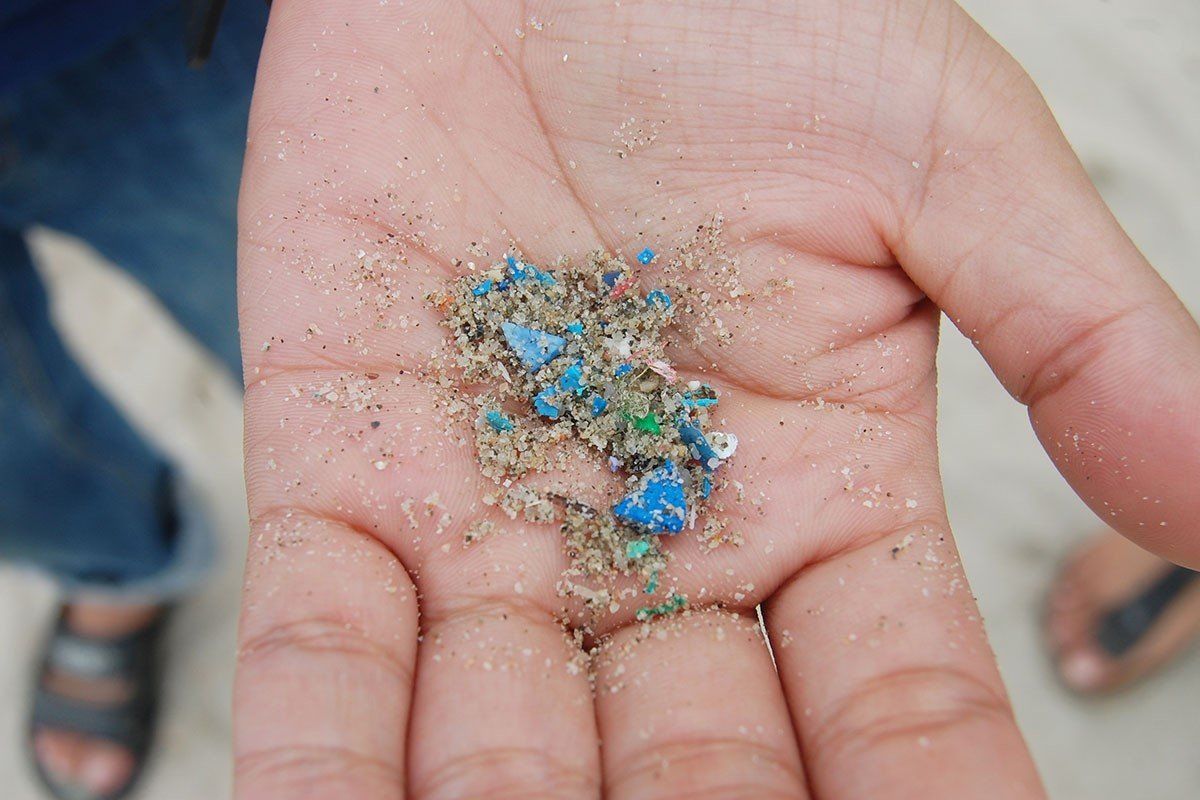Micro-plastics Creating a Mega Issue!
Microplastics have become an even greater issue than before, as evidence shows they are now present in every marine environment. New studies show how these microplastics are affecting filter feeding megafauna and the long-term effect this has on populations.
Over the last decade, the increased presence of microplastics has become a major threat to the marine environment. They easily permeate food webs and are vectors for many toxins. Despite the wide knowledge on the presence of microplastics in marine ecosystems, there is limited understanding on the threats it poses to marine megafauna filter feeders. These animals are particularly susceptible to ingesting high levels of microplastics due to their feeding strategies, prey and overlapping habitat with pollution hotspots. Understanding the effects of microplastics on filter feeding megafauna is critical to their conservation, as half of the mobuild rays, two thirds of filter feeding sharks and over a quarter of baleen whales are listed as globally threatened species by the IUCN and should be prioritised for conservation.
To understand
why these plastics pose such a huge issue, we must understand where they come
from. Microplastics are small sized plastic particles usually less than five
millimetres in size and are classified as either primary or secondary. Primary
microplastics, commonly labelled as microbeads, are found in personal-care
products like facial cleansers and toothpaste. Secondary microplastics are
formed by the fragmentation of larger plastic items. These larger plastics tend
to break apart through environmental exposure to sunlight and salt water or by
microorganisms and mechanical degradation like wind and wave action. Secondary
microplastics include synthetic fibres that originate from fishing gear and
household waste.
Filter feeding megafauna have an increased exposure to plastic pollution because many of them travel through pollution hotspots including the Gulf of Mexico, the Mediterranean Sea, the Bay of Bengal, and the Coral Triangle. The nature of their feeding strategies means that these animals must filter hundreds to thousands of cubic meters of water daily to obtain the nutrients they need to survive. There are two main ways microplastics can be ingested by these megafauna - direct consumption from polluted waters or indirect consumption through ingesting contaminated planktonic prey. The consumption of plastics can lead to a significant reduction in nutritional uptake for filter feeders. The estimated daily plastic ingestion rates for filter feeding marine megafauna vary depending on the location in which these animals are feeding. They range from a low hundred pieces a day for whale sharks in the Gulf of California to thousands of pieces for fin whales in the Pelagos Sanctuary in the Mediterranean.
The initial effect of consuming these indigestible microplastics is that it limits nutrient gain and causes mechanical damage to their digestive tract. The secondary effect is much greater and has a more long-term effect on the animals. Microplastics hold high levels of toxins and persistent organic pollutants (POPs). These toxins can bioaccumulate over many years, progressing to disruption of biological processes and potentially altering their reproductive fitness. Additionally, toxins can also be transferred or offloaded from mother to offspring which has the potential to influence growth, survival, and reproduction of the offspring. Recent studies reported finding plastic additives and POPs in the muscle of basking sharks, blubber of fin whales and skin of whale sharks.
Research is yet to confirm directly that filter feeding megafauna are exposed to these POPs and plastic associated toxins. Collecting evidence of diet through common methods such as stomach contents analysis relies on opportunistic observations and therefore is not sustainable for the threatened marine megafauna. As plastic production is projected to increase globally, more sufficient research and commitment to monitoring programs is needed.
Reference:
Germanov, E., Marshall, A., Bejder, L., Fossi, M., & Loneragan, N. (2018). Microplastics: No Small Problem for Filter-Feeding Megafauna. Trends In Ecology & Evolution , 33 (4), 227-232. https://doi.org/10.1016/j.tree.2018.01.005
SHARE THIS ARTICLE















